Publications
Articles, publications, books, tools and multimedia features from the U.S. Institute of Peace provide the latest news, analysis, research findings, practitioner guides and reports, all related to the conflict zones and issues that are at the center of the Institute’s work to prevent and reduce violent conflict.
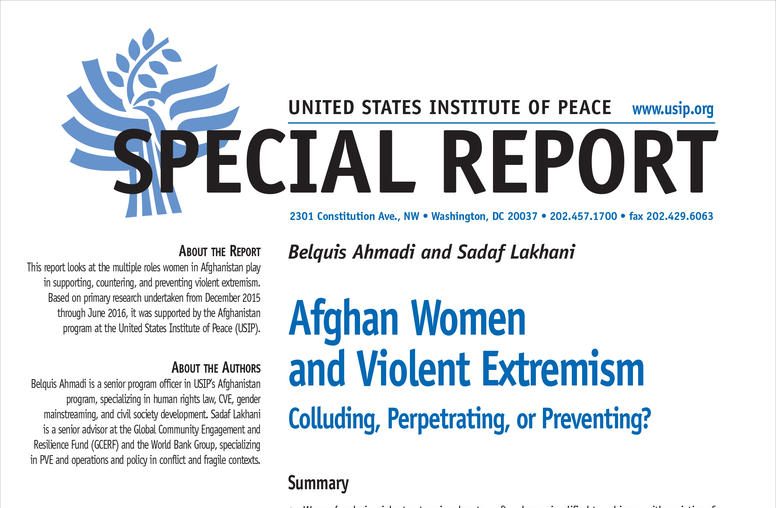
Afghan Women and Violent Extremism
In Afghanistan, the actions and narratives of violent extremist groups threaten to roll back many of the gains and hard-won rights of women over the last fifteen years. Women have long been cast in a binary light—as either disempowered victims or deviant anomalies—but in fact are involved in a wide range of activities, from peacebuilding to recruiting, sympathizing, perpetrating, and preventing violent extremism. Drawing on more than one hundred interviews in the field in Afghanistan, this re...

Experts Survey U.S.-Pakistan Ties Under President Trump
As the United States prepares for a transition to a President Donald Trump administration, what might be the future of America’s relationship with Pakistan? U.S.-Pakistani relations got little attention in the U.S. presidential election campaign, but four former senior U.S. and Pakistani officials offered what they said were likely scenarios November 16 in a forum at USIP. All four acknowledged past tensions in the relationship. Looking ahead, they cautioned against any deep rupture. “For the...
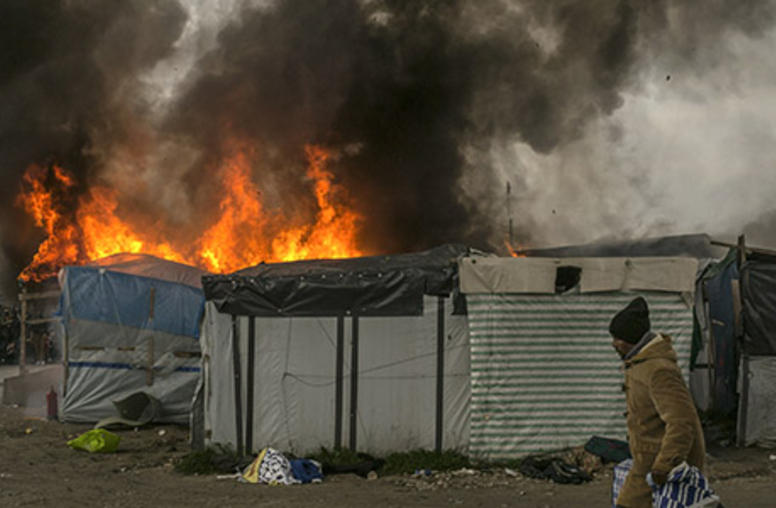
World Bank Seeks Crisis Flexibility for Long-Term Impact
The World Bank Group generally reserves its cheapest loans for the world’s poorest countries. But as protracted conflicts have swelled the number of global refugees, the bank in September unveiled a new, more flexible crisis program that allows, for example, middle-income Jordan and Lebanon, both inundated with uprooted Syrians, to borrow on the bank’s most favorable terms. The shift reflects a growing consensus that traditional distinctions among relief, reconstruction and development work a...
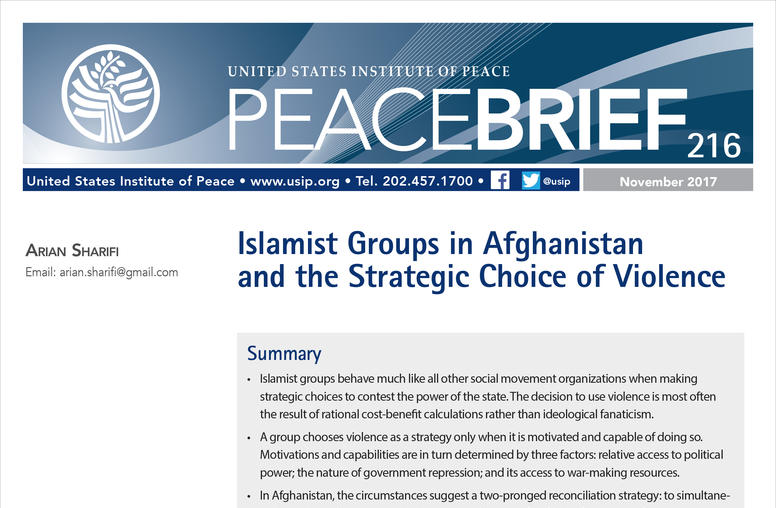
Islamist Groups in Afghanistan and the Strategic Choice of Violence
What causes established nonviolent groups to turn into violent organizations, and what leads organized violent groups to shun violence, even temporarily, and work within established political systems? This Peace Brief, which relies on in-depth interviews and primary source documents, explores the strategic choices Islamist groups in Afghanistan have made and make in using violence to contest government authority.
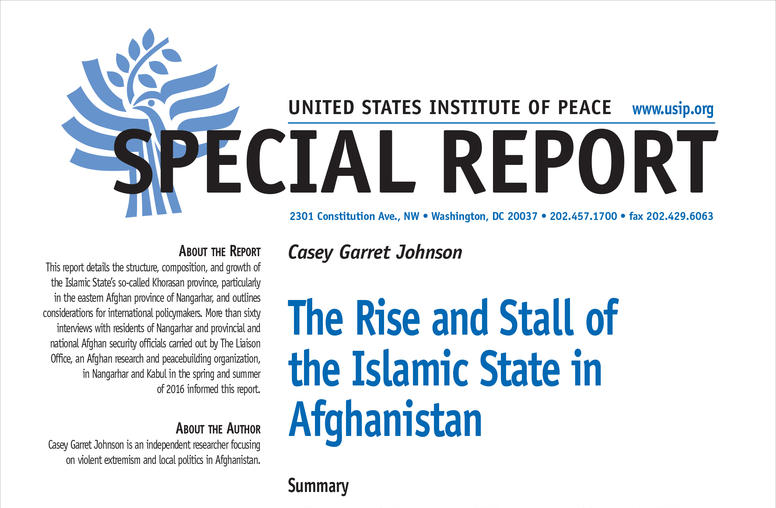
The Rise and Stall of the Islamic State in Afghanistan
This report details the structure, composition, and growth of the Islamic State’s so-called Khorasan province, particularly in the eastern Afghan province of Nangarhar, and outlines considerations for international policymakers. More than sixty interviews carried out by The Liaison Office with residents of Nangarhar and provincial and national Afghan security officials informed this report.
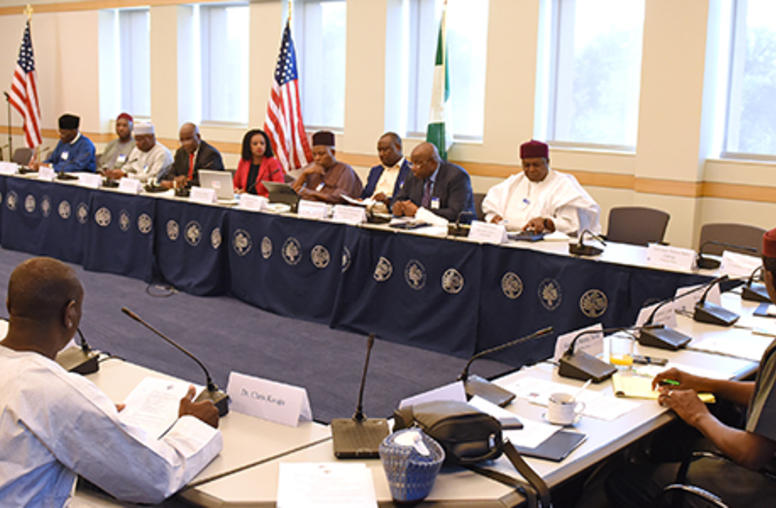
Nigerian Governors on Ways to Halt Crises, Boko Haram
A dozen governors from northern Nigeria say their region’s crises—warfare, poverty and millions of uprooted people—can be ended only with initiatives for education, reconciliation among rival groups, and the political inclusion of minorities and women. As Nigeria works to repair and build relations between police and communities, several governors said, the country’s federally run police system should be complemented with state or local police forces. The elected state governors, who wield im...
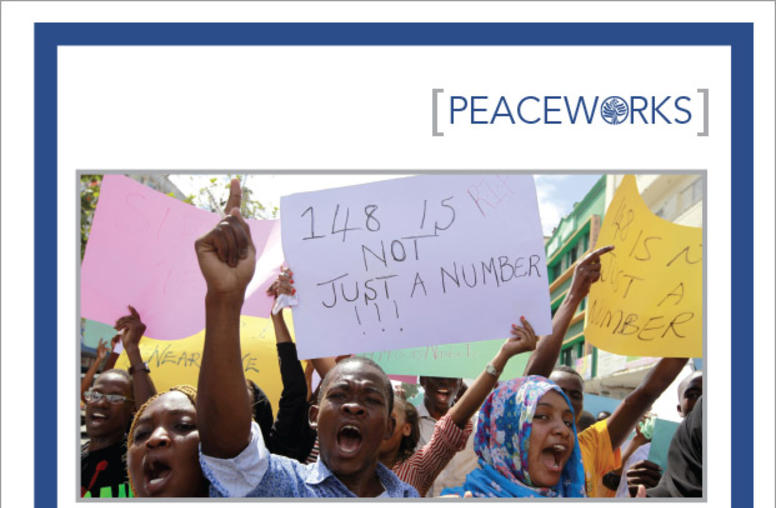
Violent Extremism And Clan Dynamics In Kenya
Derived from interviews across three Kenyan counties, this report explores the relationships between resilience and risk to clan violence and violent extremism in the northeast region of the country. The research was funded by a grant from the U.S. Agency for International Development through the United States Institute of Peace, which collaborated with Sahan Africa in conducting the study.
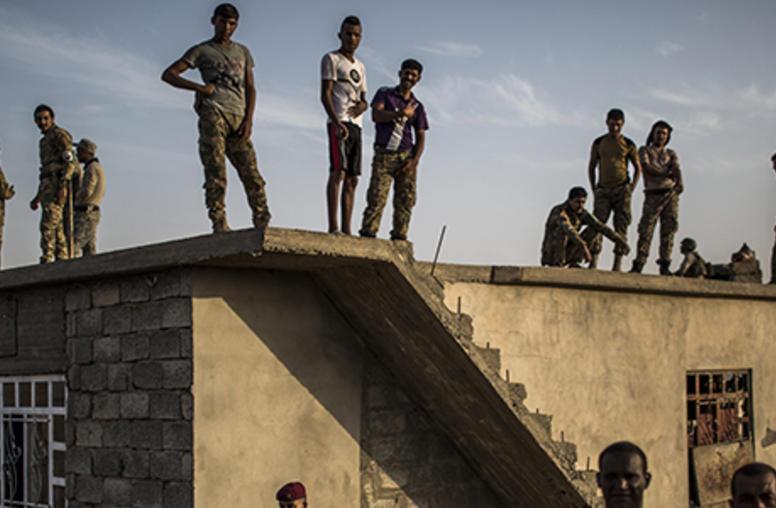
Mosul After ISIS: No Clear Plan for Peace
Two weeks into Iraq’s offensive to recapture Mosul from ISIS militants, the government and its fractious allies have not agreed on how to stabilize and govern the disputed region in the aftermath. The threat of new rounds of conflict, even after a recovery of Mosul from ISIS, is highlighted by the weekend’s surprise advance by Shia Muslim militias, which make up one of at least four main rival forces in the assault. The militia units announced that their fighters had begun a drive on the cont...
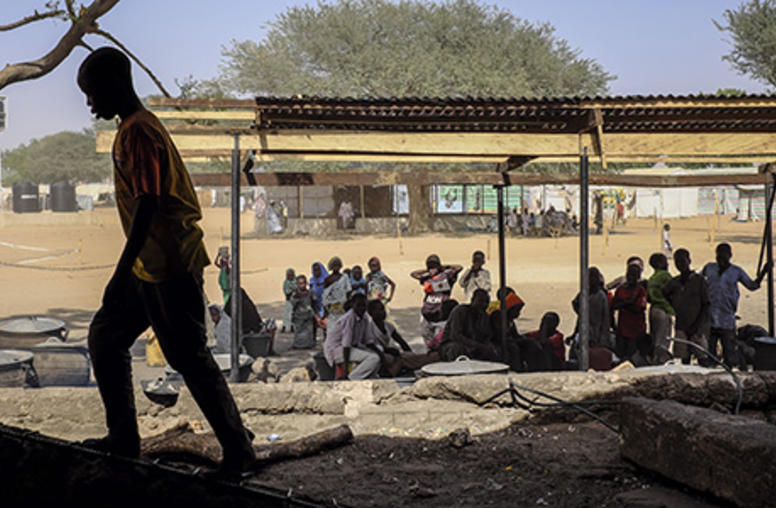
Nigerian Governors Set to Discuss Paths to Progress
The urgent challenges for Nigeria’s powerful northern state governors range from addressing a humanitarian crisis sparked by Boko Haram’s insurgency to boosting economic growth with alternatives such as agriculture to make up for declining oil revenue, Johnnie Carson, a senior advisor at the U.S. Institute of Peace, said ahead of a governors’ symposium to be held at the Institute next week.
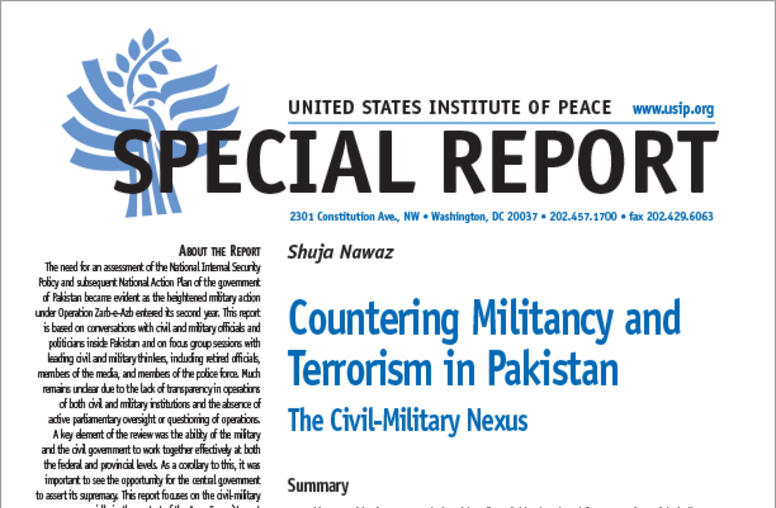
Countering Militancy and Terrorism in Pakistan: The Civil-Military Nexus
Based on interviews with civil and military officials and politicians, this report details the poor governance and imbalance of power in Pakistan and offers key recommendations for the military, civilian institutions, parliament, and civil society to achieve the goals and objectives outlined in Pakistan’s National Action Plan (NAP). The need for an assessment of the National Internal Security Policy and subsequent NAP became evident as the heightened military action under Operation Zarb-e-Azb...